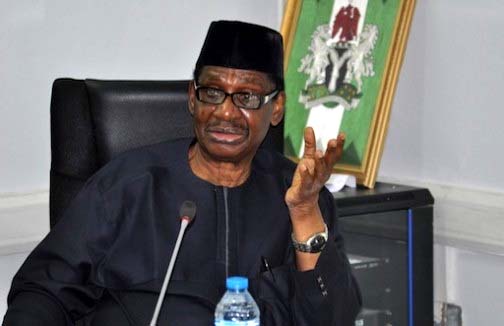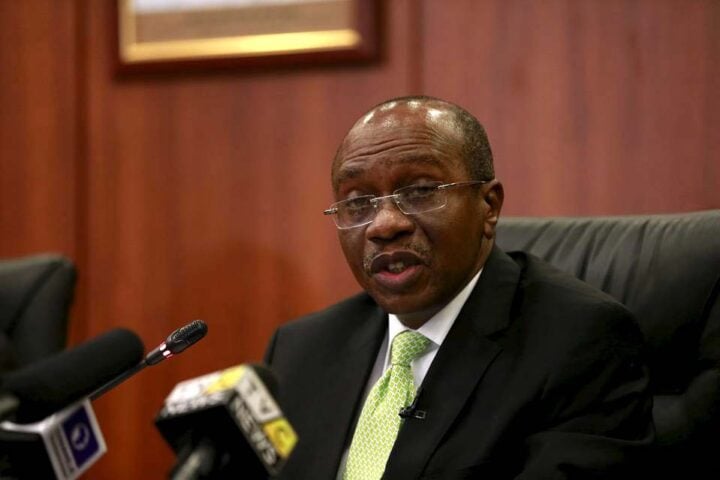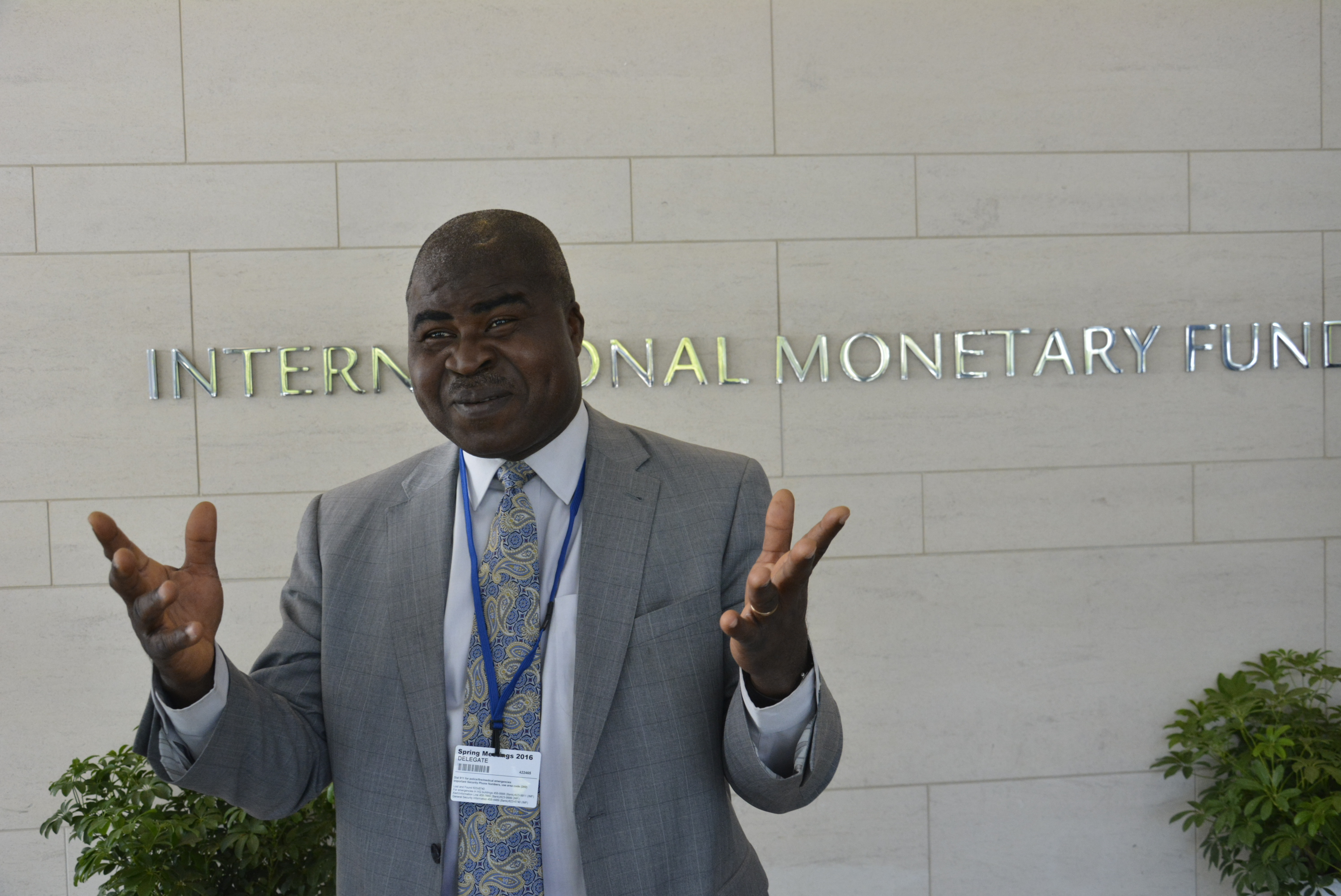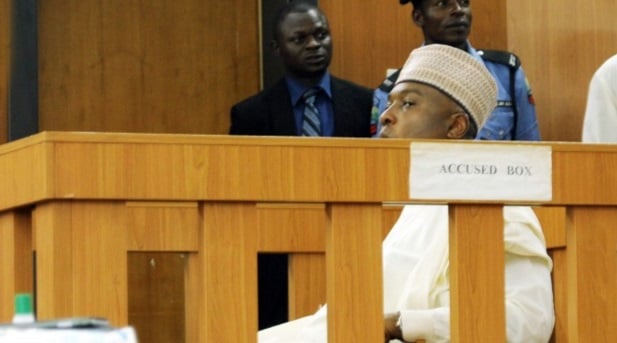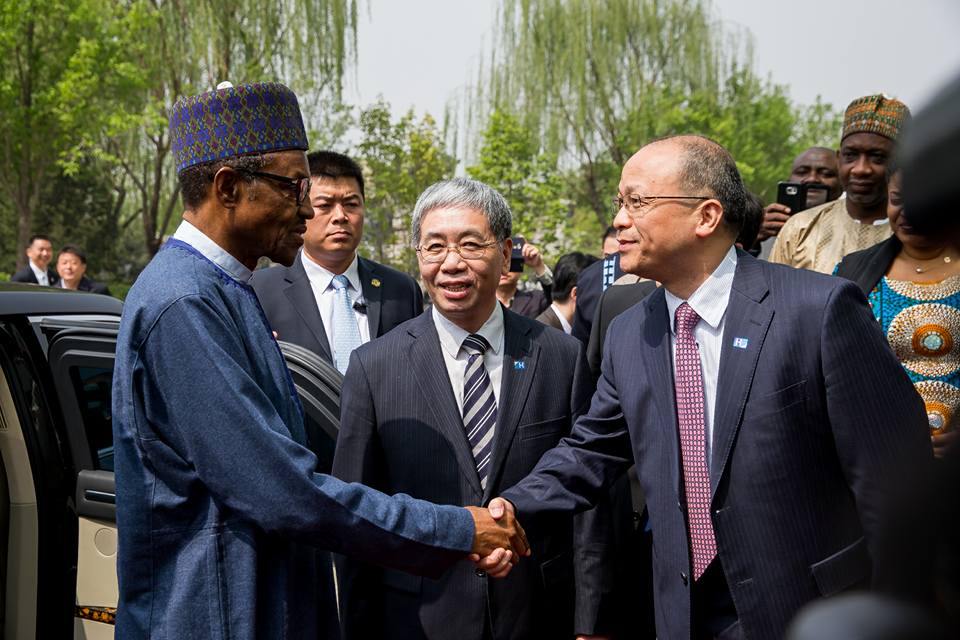By Itse Sagay
In this summary, I make comment on the important issues raised by the Supreme Court in in the Rivers state governorship case with I call “a farewell to election petitions”.
-
On Card Reader
The Supreme Court, in rejecting the use of the Card Reader adopted its earlier views on the matter in Okereke v. Umahi S.C. 1004/2015, that the use of the Card Reader would ‘dethrone’ and ‘depose’ the Voters’ Register “whose judicial roots are firmly embedded or entrenched in the self same Electoral Act from which it (Voters’ Register) directly derives its sustenance and currency” – per Nweze, JSC.
The question may be asked, how does the Card Reader ‘depose’, or ‘dethrone’ the voter’s Register. After verification by the Card Reader, the voter’s name still has to be identified in the voters’ Register and ticked before he can vote. It must be noted that both the Tribunal and Court of Appeal emphasized that, the Card Reader was intended to and did strengthen the application and efficacy of the Electoral Act, by ensuring a credible election for the benefit of Nigerians. The Election Tribunal stated expressly that “the usage of the Card Reader was complimentary to the usage of the voters’ register. In other words, the two work hand in hand towards ensuring credible elections. The voters’ Registers properly come to play where a prospective voter has been screened by the Card Reader. The sum total of the role of the Card Reader is that it is complimentary to the usage of the Voters’ Register.”
So where in all this did Nweze, JSC, discover the ‘deposition’, and ‘dethronement’, of the Voters’ Register by the Card Reader? Absolutely nowhere. What Nweze, JSC, had simply done was to give the Card Reader a bad name in order to subject it to judicial execution. Has the Card Reader eliminated the voters’ Register? No! Has it brought integrity and transparency to the voters’ Register and the whole electoral process? Yes!
Advertisement
All the Card Reader does is to act as a gate man for the voters’ Register. There was no dethronement and deposition here. There was only a step forward towards free, fair and credible elections – a procedure for sanitizing our elections and for eliminating fraud, dishonesty and rigging from our electoral process. Should any Supreme Court anywhere in the world resist and reject such a beneficial development in the electoral process? No!
The law as stated in Section 49 has not in any way been altered by the Card Reader. After being accredited through the Card Reader the voter still has to have his name checked in the Voters’ Register, and to have it ticked before voting.
Without the process of identification and recording by the Card Reader, the old system of free ticking of all names in the Voters’ Register followed by thumb imprinting in thousands to match the number ticked will continue and our elections will simply be fraud writ large.
Advertisement
So all this talk of superseding and dethroning, has no bearing whatsoever on Section 49 of the Electoral Act 2010. There is no provision of the Electoral Act banning or prohibiting the use of Card Readers. It is wrong of any one to assert that the use of Card Readers is electronic voting. It shows that such a person cannot distinguish between accreditation and voting.
Section 15 of the Electoral Act clearly empowers the INEC to issue Regulations, guidelines and manuals for the purpose of giving effect to the provisions of the Act and its Administration thereof. Introduction of Card Readers is doing exactly that. By law, the guidelines thus issued are as potent as the permitting law, i.e., the Electoral Act itself.
Ultimately, on the Card Reader issue, the only valid questions a Court of Justice ought to raise are as follows:
(i) Was the voters’ Register instituted in the Electoral Act to promote and ensure free, fair and credible elections?
Advertisement
(ii) If this is so (and it necessarily must have been so) did the introduction of the Card Reader enhance the capacity of the Voters’ Register to produce clean, fair and credible elections?
(iii) As all the Courts, even the Supreme Court, have admitted, the Card Reader has sanitized and brought transparency and integrity to the election accreditation process. The sum total of the usage of the Card Reader therefore is that it is complimentary to the work of the Voters’ register. “The two work hand in hand to ensure a credible election” – (The Tribunal)
It follows that if all the Card Reader does is to enhance, improve and promote the capacity of the Voters’ Register to ensure or guarantee, free, fair, credible and transparent elections, the Card Reader could NOT in any sense have ‘deposed’, ‘dethroned’ the Voters’ Register as Nweze, JSC, wrongly asserted in Okereke v. Umahi. Helping and enhancing the Voters’ Register’s capacity and efficiency cannot be classified as ‘dethroning’ or ‘deposing’ it. It is still there as the ultimate source after the clean up of the process by the Card Reader. The Voters’ Register could only be regarded as having been dethroned and deposed if its purpose in the Electoral Act was to promote fraud, rigging and massive irregularities. In other words, it is only when its role and purpose is in conflict with that of the Card Reader, that it can be said to have been dethroned and deposed by the Card Reader, because the two would then be working at cross-purposes with each other. But in the circumstances of this case, they were working together towards a common positive objective.
It is really incredible that the Supreme Court threw in the towel to the existing and debilitating culture of election fraud, violence and rigging, when the Law and Justice were pointing in the opposite direction.
Advertisement
Apart from all the above, the Electoral (Amendment) Act, 2015 specifically empowers the INEC to introduce innovations like Card Readers to promote the credibility and sanctity of an election. By Section 52 of the Act, “voting at an election shall be in accordance with the procedure determined by the Independent National Electoral Commission.” This gives INEC separate and extra powers to introduce processes into the election process in order to enhance its accuracy, transparency and credibility.
-
Substantial Non-compliance
The Supreme Court also asserts wrongly that in order for an election to be nullified, the Petitioner has to establish that not only (i) was there a substantial non-compliance with the Electoral Act, but additionally (ii) the Petitioner must show that the substantial non-compliance affected the result of the election. This is wrong.
Advertisement
By Section 139(1) of the Electoral Act, 2010,
“An election shall not be liable to be invalidated by reason of non-compliance with this Act if it appears to the Electoral Tribunal or Court that the election
Advertisement
(i) was conducted substantially in accordance with the principles of this Act and (ii) that the non-compliance did not affect substantially the result of the election:
It is clear that the provision on substantial compliance in section 146 of the Electoral Act, 2006, is conjunctive in nature. For an election not to be invalidated, (i) it must comply substantially with the provisions of the Act and (ii) non-compliance, (whether substantial or insubstantial) must not affect substantially, the result of the elections.
Advertisement
In other words, any election has to clear two hurdles in order to be valid; (i) it must comply substantially with the provisions of the Act; (ii) where there was any non-compliance, no matter how insignificant, it must not have substantial effect on the result.
Therefore a petitioner will succeed if he can establish either of the following:
(a) Substantial non-compliance with the Act, only or
(b) substantial effect on the result by any degree of non-compliance, no matter how trivial.
I repeat, the petitioner need only establish one of these two situations in order for the election to be invalid, namely
- Substantial non compliance with the electoral Act including the schedules and regulations, or
- Substantial effect on the election result of any infraction of the Electoral Act, schedules, regulations etc no matter how trivial the infraction.
Therefore, Kekere-Ekun, JSC, was absolutely wrong when she stated at page 67 of her judgment that in addition to establishing substantial non-compliance, the Petitioners were also obliged to also establish that the non-compliance also affected the result of the election. This is an error that some Justices of the Supreme Court have been repeating again and again inspite of corrections that have been offered several times.
The authority on this issue is Morgan v. Simpson [1974] 3 All ER 722. This is what Lord Denning said in Morgan v. Simpson:
“(1) If the election was conducted so badly that it was not substantially in accordance with the law as to elections, the election is vitiated, irrespective of whether the result was affected, or not. That is shown by the Hackney case, where two out of 19 polling stations were closed all day, and 5,000 out of 41,000 voters were unable to vote.
Thus once there is substantial non-compliance, the election is invalid Cadit Quaestio! There is NEVER any further enquiry whether or not the non-compliance affected the result of the election. It is only when the non-compliance is not substantial, that its impact on the election is considered.
-
Polling Unit to Polling Unit
Thirdly, the Supreme Court wrongly asserts that to establish non-compliance, the Petitioner has to provide evidence from polling unit to polling unit throughout the State.
Again this is incorrect.
In Hackney Case, Gill v. Reed and Holmes (1874) 2 O’M & H 77, 31 Lt 69, a leading English case, it was shown that only two out of 19 polling stations (units) were closed on election day and 5,000 out of 19,000 were unable to vote. The election was invalidated for substantial non-compliance with the relevant election law.
Can an election that was marked by killing, extensive blood shed, intimidation, mayhem and chaos require a meticulous examination of polling unit after polling unit, to establish non-compliance? No. The elections were canceled by outright violence involving, killings, election materials seizure and intimidation of voters as was overwhelming established at the tribunal. Where there was effectively no election, it is futile going from polling unit to polling unit, looking for what never existed in the first place.
In Buhari v. Obasanjo [2005] 2 NWLR (Pt. 910) 241 at pp. 520 – 522) Nsofor, JCA, nullified the whole presidential election based on events In 7 States out of 36 States.
Clearly a petitioner does not need to establish substantial non-compliance in all aspects of the election or in all places in which election was held. It is not the individual (polling unit by polling unit) that matters. It is the impact of the totality of allegations, the trend they establish and the totality of the perception they create.
-
Presumption of Validity
The Supreme Court also stated that there is a presumption of validity in favour of INEC declared results and the Onus is on the petitioner to prove that the declared outcome is wrong. This is not always the case. Where the Petitioner’s case is that there was no election, the onus is on the Respondent who asserts the positive, i.e., that there was an election.
The Court of Appeal, Benin Judicial Division put it brilliantly in this passage from the judgment of Dongban-Mensen, JCS, in Ogboru v. Uduaghan [2011] 2 NWLR (Pt. 1232) 538.
“In Imana v. Robinson (supra), Aniagolu JSC delivering the unanimous judgment of the Supreme Court, approvingly adopted the exposition in Phipson on Evidence (supra) as the Nigerian law on the subject:
“The burden of proof, in this sense, rests upon the party, whether plaintiff or defendant, who substantially asserts the affirmative of the issue. It is an ancient rule founded on consideration of good sense, and it should not be departed from without strong reasons’. It is fixed at the beginning of the trial by the state of the pleadings, and it is settled as a question of law, remaining unchanged throughout the trial exactly where the pleadings place it, and never shifting in any circumstances whatever. If, when all the evidence, by whosoever introduced, it is in, the party who has this burden has not discharged it, the decision must be against him.
We have no reason whatsoever for departing from this eloquent exposition of the law. In our view, that is a correct restatement of the consistent posture of the Supreme Court on this question, see, Elemo & Ors v. Omolade & Ors (1968) NMLR 359; Atane v. Amu (1974) 10 SC 237; Fashanu v. Adekoya (1974) 6 SC 83; Kate Enterprises Ltd. V. Daewoo Nig. Ltd. (1985) 2 NWLR (Pt. 5) 116, etc. There is no gainsaying in the fact that we are bound by these illuminating decisions of the apex court. Hence, we are under obligation to ignore any other decision, including decisions of this Court, which, to employ the apt expression of the Supreme Court, fail “to distinguish [between] the two distinct and frequently confused meanings which have always been attached to the words ‘burden of proof’”, see, Elemo & Ors v. Omolade & Ors (supra) at 361. Unarguably, any contrary decision of any other court on these two distinct meanings of the expression “burden of proof” could be, justifiably, classified as a decision reached per incuriam.
It is from this perspective, therefore, that we are endorsing the submissions of the counsel for the appellants. We, entirely agree with him that having regard to the above negative averments which the appellants made in their pleadings that no elections known to law were conducted on April 14, 2007, the respondents, who positively asserted that elections were duly conducted, had the burden of proof on the pleadings to plead the constitutive activities that define an election, namely, accreditations, Ajadi v. Ajibola (2004) 1 LRECN 255, 355 – 356 ETC. In this regard, they had the burden to plead Form EC25, a form which shows that result sheets were issued; Form EC40C, a form which shows that the said result sheets were distributed before the results in EC8A were recorded; Amgbare v. Slyva (supra) 60-63; voters’ register, Nweke v. Ejims (1999) 2 LRECN 84, 99; Nwakanma v. Abaribe (2010) All FWLR (Pt. 505) 1767, 1880; Form EC8A which is the primary evidence of votes cast in the election; the foundation or base on which the pyramid of the election process is built”
Clearly since the case of Peterside and the APC was that due to the violence, carnage and war conditions on 11th and 12th April 2015, there were no governorship elections known to law, the onus fell on Wike and the PDP to establish that there were valid elections on those dates. Not only did the Supreme Court overlook the law in this regard, but Kekere-Ekun, JSC, went so far as to say that even if Wike and the PDP had confessed that there had been no election, it would have made no difference. This is simply unbelievable.
-
Proof Beyond Reasonable Doubt
The insistence that in a civil case, which is what an election petition is, the petitioner must prove his case beyond reasonable doubt if the commission of a crime is involved, is wrong. If the killer, or maimer or character engaged in violence during an election is actually on trial, then proof of his offence, which may send him to prison, must be beyond reasonable doubt.
However, if all that the Petitioner is claiming is that elections were frustrated by wide spread violence, he does not need to prove the commission of any offence beyond reasonable doubt since no one is on trial.
The question of the applicability of “proof beyond reasonable doubt” had long been laid to rest by Obaseki, LSC. In Onoh v. Nwobodo, (Reported in [2004] 10 WRN 27 at 108) when he held that:
“the commission of a crime by a party to this proceeding is not directly in issue and the petitioner is not required in law to discharge the burden of proving the crime or offence of falsification against any party to the proceeding. The standard of proof required of the petitioner in these proceedings to succeed is the balance of probabilities..” (Emphasis added) [2004] 10 WRN at pp. 131-2
For this, Obaseki, JSC, relied on Benson Ikoku v. Enoch Oil [1962] 1 All NLR 194 at 199, where Unsworth F.J. held as follows:
“The provisions of section 137(1) were considered by this court in the case of Sunday E. Oso v. Chief Festus Okotie Eboh unreported suit (FSC. 407/1959) where we held that the issue of a crime must arise on the pleadings. We have not, however, previously considered the scope of the subsection. In my view, the subsection only applies where there is a specific allegation of a crime in the pleadings so that the commission of a crime can properly be said to be a basis or foundation of the claim or defence as the case may be. For example, the subsection would apply where a defendant in an action for libel pleaded justification of an allegation that the plaintiff committed a criminal offence or where a petitioner sought divorce under the Matrimonial Causes Act, on the grounds of rape, sodomy or bestiality. In the present case, the matter directly in issue is not whether a crime has been committed but whether the prosecution was without reasonable and probable cause and malicious ….” Thus where no one is on trial, the issue of proof beyond reasonable doubt should not arise. In any case, the nature of the evidence in the Rivers State governorship case was such that its level was definitely beyond reasonable doubt.
-
Some Matters of Significance
It is of great significance that the elections into 23 Seats out of 31 in the Rivers State House of Assembly were nullified by both the Legislative Houses Election Tribunal and the Court of Appeal. Those nullified “elections” were conducted in the same polling units, by the same INEC Officials on the same day (11th April 2015) and at the same time as the Governorship election. They were all voided for reasons of violence, mayhem, killings, chaos, ballot snatching, intimidation, gross violations of the Electoral Law, Massive irregularities, etc. They ‘Voters’, polling units, Election Officials and all other factors and personnel were exactly the same as those that applied to the governorship election. Yet going by the implications of the Supreme Court decision, the election was perfect with regard to balloting in the governor’s case, but massively irregular when it came to the House of Assembly balloting – same polling unit, same voters, same INEC Officials, same date, same time!
Only the Supreme Court was able to salvage a valid governorship election from the ruins surrounding all the other elections at the same polling units, at the same time, at the same date, by the same people involved in the House of Assembly elections.
It is also significant that all the elections to the Senate (3 Seats) and all of the House of Representative (6 seats) from Rivers State, this time held on 28 March, 2015 were nullified for the same reasons as the House of Assembly elections were nullified by the Tribunal and the Court of Appeal.
And so we have the following situation: elections to 23 House of Assembly seats were nullified by Legislative Houses Tribunal and the Court of Appeal. All elections to the Senate and House of Representatives were nullified by the Tribunal and the Court of Appeal. The governorship election was nullified by the Tribunal and the Court of Appeal.
In the midst of all this, the Supreme Court snatched the governorship election from the devastation and massive irregularities upheld on all other elections held at the same time, on the same day, at the same venues, by the same officials. How could the governorship election smell like fresh roses, whilst all other elections conducted together with it, smell like sewage and refuse? This is a puzzle that will never be resolved.
In addition to the above, when re-run elections were to be held to fill the Senate, House of Representatives and House of Assembly seats in Rivers State on 19 March, 2016, the Federal Government flooded the State with Soldiers, well-armed Policemen and DSS operatives. The Police alone constituted 6000 men. This was intended to discourage and deter the private armies of Rivers State from frustrating the holding of the elections.
What happened? Days before the election and in total disregard of the Federal Armed Forces brought in to enforce peace and establish stability, the Rivers State private army emerged again, commenced killing, not only innocent civilians, but even army and police officers brought in to enforce peace. They not only neutralized the Federal armed forces, but caused so much violence, mayhem and disorder and instability that the elections were cancelled in a large number of Constituencies and the INEC has refused to go back to Rivers State to conduct fresh elections until peace and stability can be guaranteed.
If Wike and the Rivers State PDP could plunge the State into so much violence in the presence of such a large Federal Armed Force, it does not take much to imagine the State of affairs in the State for the APC on 11th April 2015, when the Rivers Private Armies had the backing of the Federal Forces at that time. The combined Forces of Rivers PDP and the Federal Government were in total control, and the PDP simply wrote out any result it wanted and the heavily compromised and partisan Rivers State INEC Resident Electoral Commissioner rubber stamped any result she was given by the PDP.
What an election? What a war victory?
The Wike v. Peterside Supreme Court decision constituted the most devastating judicial blow on Democracy, the Rule of Law and Free, Fair and Credible Elections this country has ever seen. Not only have incredibly high and insurmountable barriers against election petitions been erected by that decision, it also gives an indomitable rock like status to anyone, who by blood, mayhem, violence, massive irregularities, fights his way on to the governorship seat; indeed, any electoral office. He is assured of unshakeable, solid tenure for 4 years. The full implication of the Supreme Court’s decision in Wike v. Peterside is: “when you prepare for Elections, prepare for War”. This judgment constitutes, “A Farewell to Election Petitions”.
Reflecting on another oddity, all Supreme Court decisions on governorship elections, were unanimous: 7/7. This is very unusual in an institution made up of top jurists and intellectuals.
In 1979, in the Awolowo v. Shagari case, the vote was 5/2. Eso, JSC, dissented openly. Obaseki agreed that Shagari had not won 122/3 States, but had performed substantially in accordance with the relevant law. In 2007, in Atiku v. Yar’Adua and Buhari v. Yar’Adua, the Supreme Court split, 4/3 with Mariam Mukhtar, Oguntade and Onoghen, JJSC, dissenting.
What really happened this time?
Add a comment
